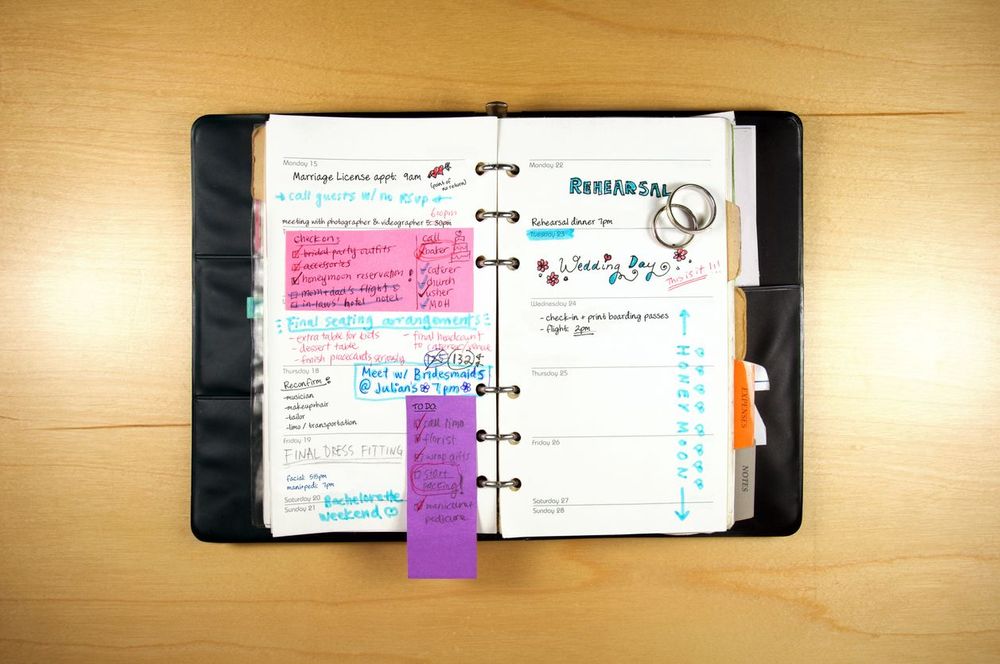
No one likes to be bored at work, but being busy could be even worse. Whether you took on another job or your boss laid on more work, you might struggle to keep everything together. It's easy to become overwhelmed, which results in poor work quality and burnouts. When you start to get busy, follow a few easy tips and you can watch your worries melt away.
If a manager gives you a large project, you might feel as if the deadline is just looming over you. Every time you think of the project, the sheer size of it could keep you from getting started.
Instead of looking at the project as one large task, split it up. For instance, you might need to make a two hour PowerPoint presentation. Break the project up into 15 minute segments and set deadlines for each segment. Then, the two hours might not seem like such an impossible feat.
You can't work on five things at once, so don't even try. Before you draw straws to pick a task, set priorities. Which task is the most important? Which one has the soonest deadline?
If you can't figure out which one is a priority, ask for guidance. Your employer would rather you ask them which task is a priority than have you finish an important task late. Once you know which task is the most important, pick the next ones on your list.
Sometimes, there's more time in a day than you think. Although you might not think there's time to finish your work, there's a chance you're just not organizing your time well. Before you start working, track how long you spend on each task.
At the end of the day, look at how you spent your time. Was your day efficient? How much of your day did you actively spend working? When you analyze your habits, you might see room for improvement. It might be more efficient for you to change up your schedule.
If certain tasks seem to take longer than they should, set short deadlines for yourself. You might only give yourself 30 minutes to answer emails, after which you move on to something else. Your productivity could drastically improve.
If you find yourself sitting in meetings for 30 minutes after they should be over, you need to regain your time. Make a start and end time of meetings strict, and don't allow small talk to get in the way.
In some cases, in-person meetings are not necessary. You can save yourself a great deal of time by holding some of your meetings over the phone or on a video chat. Before you set a meeting, consider which option would be the most appropriate.
Finally, keep your meetings as small as necessary. You don't need the whole office to attend a meeting for one department. For a faster, more efficient meeting, pick the attendees with care.
You might be exceptional at your job. But that doesn't mean you can perform the work of three people or meet unrealistic expectations. If it seems like you have too much work on your plate, you probably do. Don't try to take on too much, or you will set yourself up for failure.
For maximum success, you should take on only what you can handle. If your boss puts too much on your schedule or has unrealistic deadlines, speak to them about it. Wouldn't you rather be honest and push back a deadline than be late on finishing a project?
Depending on your role, you may need to outsource some of your tasks. You may be able to take on an unpaid intern, hire a virtual assistant, or ask a subordinate to help. As long as your supervisor is open to the idea, outsourcing can make a huge difference.
If you can't outsource tasks in the workplace, consider doing it at home. You might not be able to give your work to someone else, but hire a cleaner to keep your home clean. When you don't need to focus on so many things at home, you can spend more time finishing your work.
You should have one schedule with everything included in it. Rather than have a monthly calendar, a weekly planner, and a bunch of post-it notes, keep your schedule in one place. This makes it much easier to stay organized and remember the things you need to accomplish.
If you don't have any type of organizational system, take the time to create one. While you might lose an hour putting together your schedule, you could save hours a week thanks to your efforts. When you're not scrambling around trying to find appointment notes, your workflow is much smoother.
To be more efficient, group your tasks together. If two tasks are related, work on them at the same time. You don't need to give your brain time to switch gears or to organize new supplies.
For example, you might need to grade several sets of assignments and answer emails. Rather than swap from assignments to emails and back to assignments, stick to one thing. It might seem monotonous, but you'll finish it quicker than you would if you changed tasks.
Every night before work, plan the following day. Think about everything you need to do and come up with a tentative schedule. Although things may come up and change your plan, you can have a much less stressful day if you prepare for it.
Oftentimes, people fail to do the things that could make their workload more manageable because it takes time. Although you may not think you have 30 minutes to sit down and organize your day, you can find the time for it and make up for that time. With a little effort, you can handle an increased workload.
Lorem Ipsum is simply dummy text of the printing and typesetting industry. Lorem Ipsum has been.
